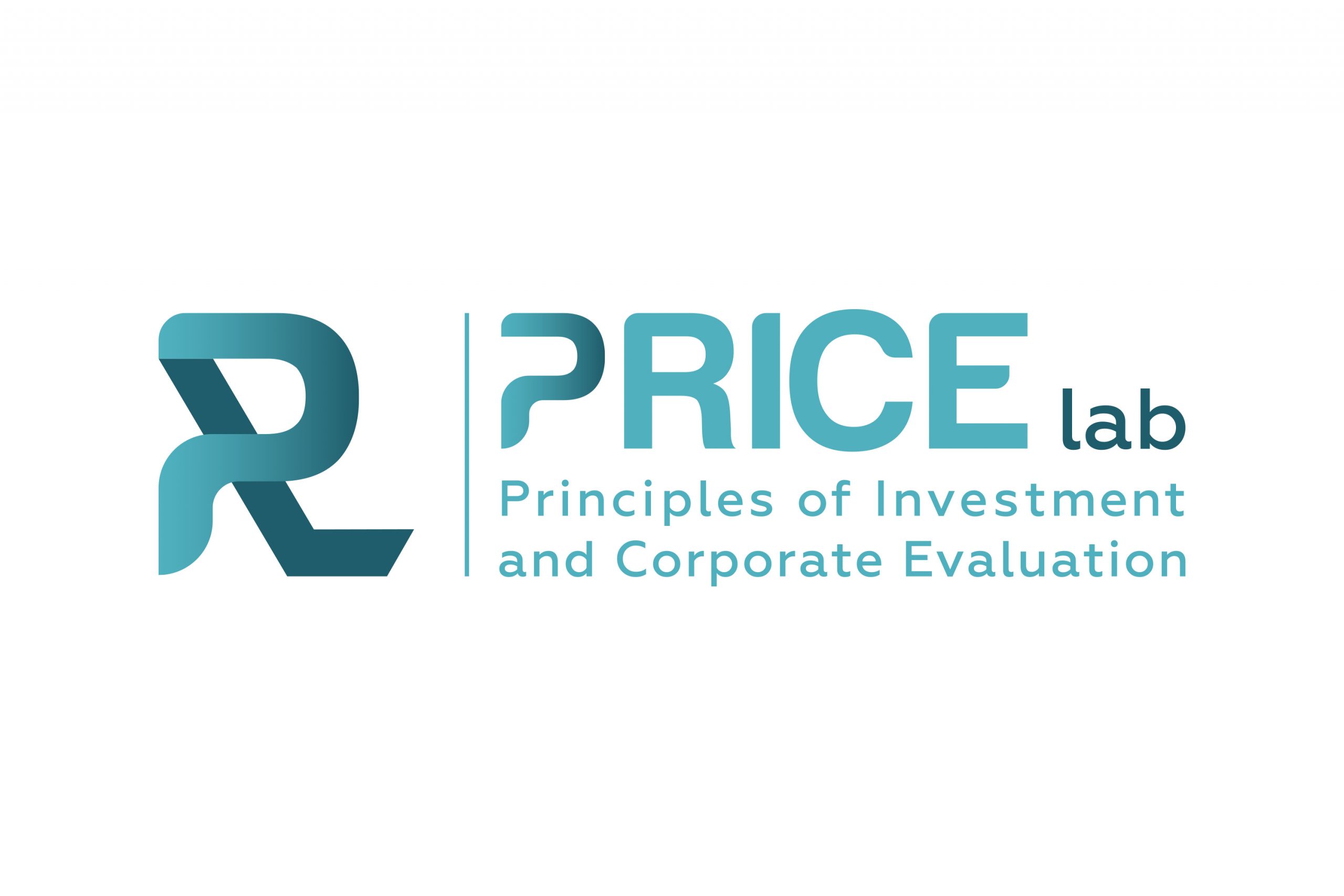The lab conducts top edge research in Financial Analysis and Corporate Finance.
- The research in Financial Analysis mostly concerns the analysis of the performance and risks of financial products or investment such as stocks and investment funds. This involves the definition of risk factors and models to determine expected returns based on appropriate risk measures.
- The research in Corporate Finance mostly deal with investment decisions and the process of value creation for companies, shareholders and stakeholders. Recently, the focus has been made on venture and private equity investment.
The lab addresses sustainability issues in both axes (Financial Analysis and Corporate Finance) in a new research program called “Responsible Investment”.
Main Publications
Research on market anomalies highlights the failure of traditional models to measure the expected returns of certain financial securities. A first paper published in 2013 already established an innovative methodology to construct risk factors: the sequential approach. Some years later, the paper “Factoring Characteristics into Returns: A Clinical Approach to Fama-French Portfolio Decomposition” “challenges” the standard methodology for constructing risk factors, developed by Eugène Fama (Nobel Prize in Economics 2013) and Kenneth French. Based on the results of this publication, the research “Risk Optimizations on Basis Portfolios: The Role of Sorting” shows the implications of this paradigm shift in the construction of diversified investment strategies. A second article under review analyzes the consequences in terms of asset selection in portfolio management.
- Fays, B., Papageorgiou, N., and M. Lambert (2021). Risk Optimizations on Basis Portfolios: The Role of Sorting. Journal of Empirical Finance 62, 136-163. https://doi.org/10.1016/j.jempfin.2021.06.002 – Open access: http://hdl.handle.net/2268/261043
- Lambert, M., Fays, B., and G. Hübner (2020), Factoring Characteristics into Returns: A Clinical Approach to Fama-French Portfolio Decomposition, Journal of Banking and Finance, 114. https://www.sciencedirect.com/science/article/abs/pii/S0378426620300789 – Open access: http://hdl.handle.net/2268/246901
- Lambert, M., and G. Hübner (2013), Comoment Risk and Stock Returns, Journal of Empirical Finance 23, 191-205 https://www.sciencedirect.com/science/article/pii/S0927539813000492 – Open access: http://hdl.handle.net/2268/153114
Research on hedge funds focuses on determining the risks posed by their flexible, poorly regulated and non-transparent investment strategies. It contributes to the literature on financial risk modeling and on models for determining expected returns. It can also be useful for regulators and investors. In particular, the lab publications address the following specific issues: (i) the macroeconomic determinants of the risk exposure of these hedge funds, (ii) the analysis of the extreme risks of these funds, (iii) a critical analysis of the structure of hedge fund performance fees and, finally (iv) a review of the literature on hedge fund risk models.
- Lambert, M., and F. Platania (2020). The Macroeconomic Drivers in Hedge Fund Beta Management, Economic Modelling (91), 65-80. https://doi.org/10.1016/j.econmod.2020.04.016 – Open access: http://hdl.handle.net/2268/246900
- Hübner, G., Lambert, M., and N. Papageorgiou (2015), Higher-Moment Risk Exposures in Hedge Funds, European Financial Management 21(2), 236-274. https://doi.org/10.1111/eufm.12054 – Open access: http://hdl.handle.net/2268/117570
- Lambert, M. (2012). Hedge Fund Market Risk Exposures: A Survey. Finance 33(1), 39-78 – Open access: http://hdl.handle.net/2268/118426
We highlight some negative effects related to private equity contracts.
We demonstrate that private equity contracts linking the fund sponsor and the investors might become sub-optimal in case the fund disposes of an excess of cash, also called “dry powder”. We also show the impact of leveraged buyouts on employee satisfaction.
- Lambert, M., Scivoletto, A., and T. Tykvovà, Agency Costs of Dry Powder in Private Equity. – Open access: http://hdl.handle.net/2268/261064
- Lambert, M., Moreno, N., Phalippou, L., and A. Scivoletto, Employee Views of Leveraged Buy-Out Transactions . – Open access: http://hdl.handle.net/2268/249369
Current projects in Responsible Investment
In 2021, the Global Sustainable Investment Alliance (GSIA) reported that about $35 trillion of assets are professionally managed with the goal of incorporating environmental (E), social (S), or governance (G) norms or principles in the investment process, as measured through “ESG” ratings. This constitutes one third of the total assets under management worldwide (GSIA, 2020). Members of Pricelab conducts research to provide a better understanding of the financial materiality of ESG ratings, i.e., to understand how this non-financial information impacts financial theory, especially the risk-return equilibrium.
The purpose of ESG corporate ratings is to measure how a business scores on environmental, social and governance criteria in terms of exposures to risks and opportunities as well as management practices. We investigate the differences between the numerous rating systems.
The perils of ESG rating fixation (Marie Lambert and Shoaib Ul-Haq)
We provide a detailed analysis of the main ESG rating providers with regard to their scope, purpose and measurement process. It investigates the different mental models or theoretical framework and beliefs behind each system.
Documenting biases in “ESG” rating databases (Anouck Faverjon, Céleste Hardy, Marie Lambert and Laurent Prunier)
This project documents how financial characteristics interfere in the assessment of firm sustainable footprint for different rating systems as well the difference in coverage between the main ESG rating provider. We show that these elements bias the assessment of the predictive ability of ESG rating for firm performance.
ESG rating disagreement and financial analysts forecasts (Laurent Prunier, Marie Lambert, Wouter Torsin)
This project analyses the impact of the confusion around ESG scores on forecasts made by financial analysts. These analysts, in their role as information intermediaries, incorporate ESG data when providing forecasts. At the same time an ever-increasing amount of independent rating agencies provide the market with firm-level ESG performance scores, relying on different methodologies and resources, often resulting in significant rating disagreements.
Rather than enriching the information environment, rating disagreements across providers arguably increase uncertainty surrounding a firm’s true ESG performance. This project tests whether this information uncertainty reduces the performance of financial analysts. More precisely, whether a dispersion in firms’ ESG rating results in an increased forecast dispersion.
This project studies investors consideration of ESG information while investing. We rely on several proxies for ESG information as well as external shocks to investigate the effect of ESG attention-grabbing signals on investors preferences for sustainable investments. We identify how ESG-related signals affect the investment behaviour of economic agents with preferences for sustainability. The project also aims to highlight the divergences in investors behaviour regarding sustainability across geographical area.
The objective of the Climate-risk pricing project is to evaluate the financial risks related to climate and environmental changes. It focuses on the estimation of an environmental factor impacting the price of corporate bonds. The project also aims to evaluate a physical climate risk premium with both sectoral and geographical granularity.
International Networks & Events
Prof. Marie Lambert is member of the managing committee of the BENELUX Corporate Finance network of researchers gathering 17 universities. On top of the annual event, the network organizes seminars twice a month. More activities will be developed in the future with the goal of creating a strongly-connected and well positioned (on the international scale) group of researchers in BENELUX. To know more about the activities of the network: https://sites.google.com/view/beneluxcfn/home
In 2013, HEC Liège was the host of the Corporate Finance (“CF”) Day, an annual event which gathers annually about 100 participants presenting the most up-to-date and impactful research in Corporate Finance. In 2020, HEC Liège took the challenge of hosting its 17th edition, in an online format. In the meantime, the scientific community has grown and internationalized tremendously.
Marie Lambert is an academic partner of the INEF-Network (Thematic Network Innovation, Entrepreneurship and Finance). More info: https://inef.uni-hohenheim.de


